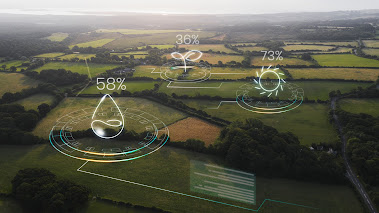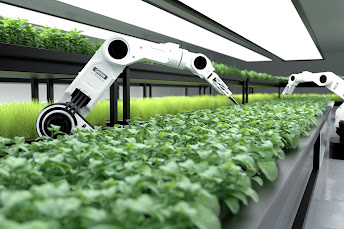Cultivating Change: How Agriculture Holds the Key to Climate Solutions
Climate change is an escalating global concern, and its impact on the environment has spurred a quest for sustainable solutions. Amidst this urgency, agriculture emerges as a pivotal player in the battle against climate change. The interconnection between climate change and agriculture underscores the sector's potential not only as a victim but also as a powerful agent of change.
Climate-Smart Agriculture: Navigating Challenges with Innovation:Agriculture is both affected by and contributes to climate change. Extreme weather events, altered precipitation patterns, and rising temperatures pose significant challenges to crop yields and livestock productivity. At the same time, traditional farming practices, deforestation, and intensive land use contribute to greenhouse gas emissions, exacerbating the climate crisis. Recognizing this symbiotic relationship, there is growing momentum to harness agriculture's transformative potential.
Harvesting Hope: The Role of Sustainable Practices:
One key strategy involves adopting climate-smart agricultural practices. These encompass a range of techniques such as precision farming, agroforestry, and organic farming that enhance resilience to climate variability while minimizing environmental impact. Additionally, advancements in crop breeding and genetic engineering contribute to the development of climate-resilient and high-yielding varieties.
Agroecology: Cultivating Harmony between Farming and Ecology:
Agroecology, an approach that integrates ecological principles into farming systems, has gained traction for its potential to promote biodiversity, enhance soil health, and mitigate climate change. By emphasizing the importance of sustainable and regenerative practices, agroecology offers a holistic approach to address the intertwined challenges of food security and climate resilience.
Sowing the Seeds of Change: Reforestation and Sustainable Land Management:
Moreover, sustainable land management practices, including reforestation and agroforestry initiatives, play a crucial role in sequestering carbon and preserving biodiversity. These measures not only mitigate climate change but also contribute to ecosystem restoration and the conservation of vital habitats.
Cultivating Positive Change: A Resilient Future Through Agriculture:
In conclusion, the nexus between climate change and agriculture necessitates a paradigm shift towards sustainable and climate-smart practices. By embracing innovation, adopting eco-friendly techniques, and fostering a commitment to conservation, the agricultural sector can emerge as a cornerstone in the global effort to cultivate positive change and build a resilient future.




.jpg)
Comments
Post a Comment